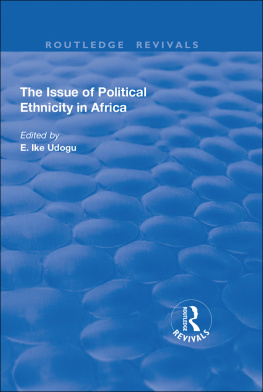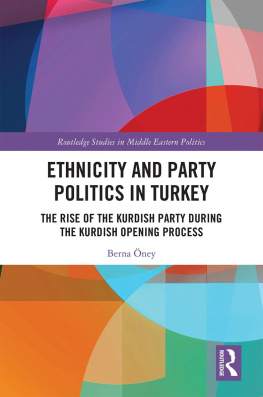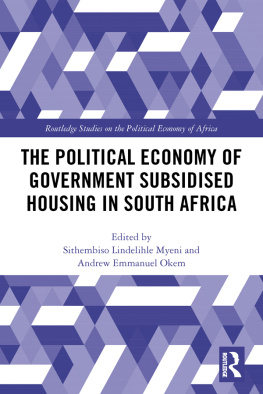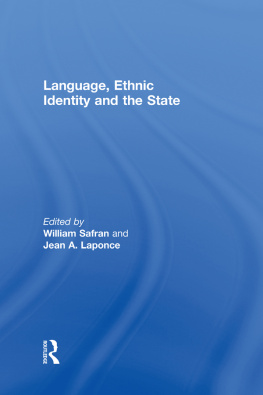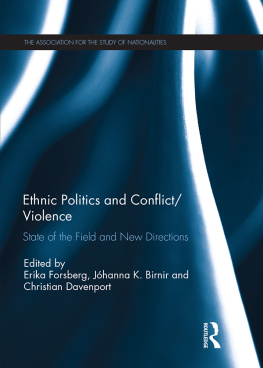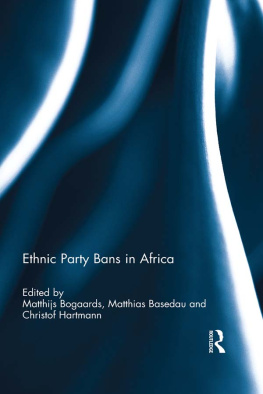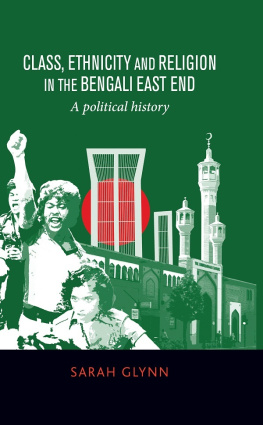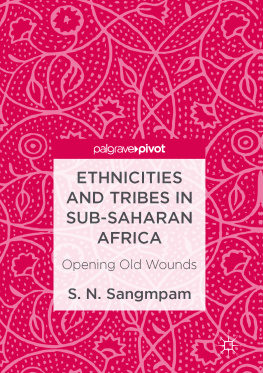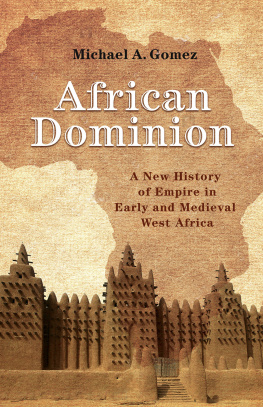First published 2001 by Ashgate Publishing
Reissued 2018 by Routledge
2 Park Square, Milton Park, Abingdon, Oxon OX 14 4RN
711 Third Avenue, New York, NY 10017, USA
Routledge is an imprint of the Taylor & Francis Group, an informa business
Copyright E. Ike Udogu 2001
All rights reserved. No part of this book may be reprinted or reproduced or utilised in any form or by any electronic, mechanical, or other means, now known or hereafter invented, including photocopying and recording, or in any information storage or retrieval system, without permission in writing from the publishers.
Notice:
Product or corporate names may be trademarks or registered trademarks, and are used only for identification and explanation without intent to infringe.
Publishers Note
The publisher has gone to great lengths to ensure the quality of this reprint but points out that some imperfections in the original copies may be apparent.
Disclaimer
The publisher has made every effort to trace copyright holders and welcomes correspondence from those they have been unable to contact.
A Library of Congress record exists under LC control number: 2014044164
ISBN 13: 978-1-138-73490-6 (hbk)
ISBN 13: 978-1-315-18688-7 (ebk)
John Boye Ejobowah obtained his Ph.D. in political theory from the University of Toronto where he teaches African politics. His research interest is in late 20th century theory, constitutionalism and ethnic conflict-reduction. He has published in Africa Today, Journal of Nationalism and Ethnic Politics and Journal of Third World Studies.
Julius O. Ihonvbere is Professor of African politics in the Department of Government at the University of Texas at Austin, and currently serves as Program Officer, Governance and Civil Society Unit, The Ford Foundation, New York. His research interests focus on the state and democratization, human rights, the military and the new globalization. His prodigious works have appeared in such journals as Africa Today, The Journal of Modern African Studies, Journal of Asian and African Studies, International Politics, The Journal of Political and Military Sociology, just to list a few. He has published numerous books including Nigeria: The Politics of Adjustment & Democracy (Transaction Publishers, 1994); Economic Crisis, Civil Society and Democratization: The Case of Zambia (Africa World Press, 1996); and Africa and the New World Order (Peter Lang, 1998). He has also contributed numerous book chapters, including in the pages of this volume.
Kelechi A. Kalu is an Associate Professor of political science at the University of Northern Colorado, Greeley, Colorado. He was a Mellon Research Fellow in Government at Connecticut College, New London, Connecticut in 1994/1995. He is the current program chair of the International Studies Association-Southwest, 1999-2001. He is the author of Economic Development and Nigerian Foreign Policy (The Edwin Mellen Press, 2000). His publications and forthcoming works include articles in International Journal of Politics, Culture and Society, Africa Today, Journal of Nigerian Affairs, Journal of Asian and African Studies, Journal of Third World Studies, and several book chapters on African and Third World issues. He is currently working on a manuscript on international relations theory and conflict prevention in Africa.
F. Wafula Okumu is an Assistant Professor of political science. He teaches human rights issues in the Peace Studies Program, Department of Political Science, Chapman University, Orange, California. His research focuses on human rights and peace issues in Africa. He has written extensively on Kenyas contemporary politics in Kenyan newspapers. He has several forthcoming book chapters on African politics.
Peyi Soyinka-Airewele teaches African politics and international relations at Ithaca College, Ithaca, New York. Before joining the faculty at Ithaca College, Soyinka-Airewele taught at Colgate University, Hamilton, New York. Her research focuses on ethnic politics and ethnic minorities. Her works include Ethnic Minorities in European Union: A Study of the Basques and Irish Republican Separatists (Ile-Ife, Nigeria, 1988); and articles in several refereed journals.
E. Ike Udogu is a Professor of African and International Politics at Francis Marion University, Florence, South Carolina. He has published extensively on Nigerian and African politics. His research has been published in the Maker ere Political Science Review, Journal of Asian and African Studies, Journal of Developing Societies, IN DEPTH: A Journal for Values and Public Policy, Canadian Review of Studies in Nationalism, The Review of Black Political Economy, Journal of Black Studies, Journal of Political Science, and Journal of Third World Studies, just to cite a few. He is the author of Nigeria and the Politics of Survival as a Nation-state (The Edwin Mellen Press, 1997); and editor of Democracy and Democratization in Africa: Toward the 21st Century (E. J. Brill, 1997). He has contributed numerous book chapters on African politics. He was a National Endowment for the Humanities Fellow, and serves on the editorial advisory board of Collegiate Press, San Diego, California. He is the Director of Research and Publication, African Studies and Research Forum (ASRF).
Olufemi Vaughan teaches history and political science at the State University of New York at Stony Brook, New York. He has published in African Affairs, International Journal of Politics, Culture and Society, Journal of Asian and African Studies, and Journal of Commonwealth and Comparative Politics. He is the author of Nigerian Chiefs: Traditional Power in Modern Politics 1890s-1990s (University of Rochester Press, 2000).
Alfred B. Zack-Williams is a Principal Lecturer in the Department of Sociology and Social Policy, University of Central Lancashire, Preston, England. He has written widely on Africa, and Sierra-Leone, in particular. He has published in the following journals: Review of African Political Economy, Third World Quarterly, Journal of Black Studies and Africa Development. He is the author of Supporters, Tributors and Merchant Capital in Sierra-Leone (Gower-Avebury Press, 1995). In addition, he has contributed several book chapters on African social and political issues. He is a member of the editorial board of the Review of African Political Economy.

